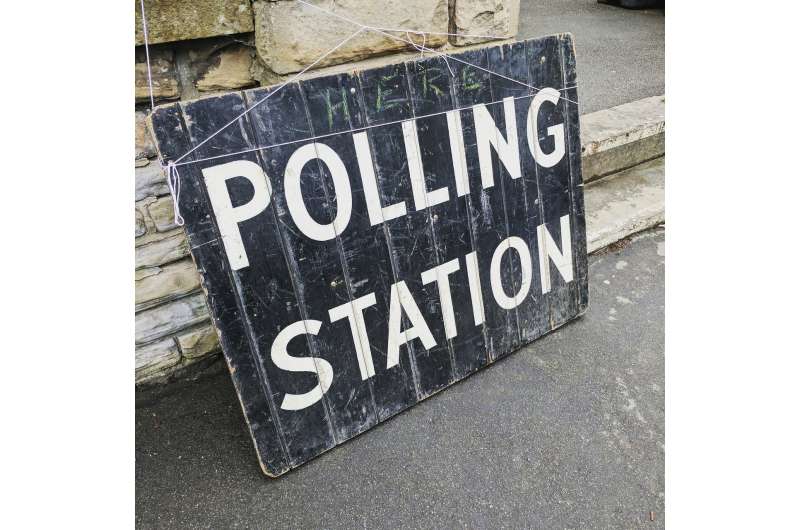Anxious about the election? Political scientists explain why

There are arguably historic levels of anxiety leading up to the 2020 presidential election, and forthcoming UCR research holds the party faithful on one side are feeling it more than the other.
In 2016, UCR psychology researcher Kate Sweeny conducted a survey of voters for eight weeks leading up to the election. In that survey, she found similar levels of anxiety among supporters of Donald Trump and Hillary Clinton.
Sweeny has evaluated the first batch of results from a similar, five-week research project on anxiety and the 2020 election. This time, the results from about 450 participants are showing more anxiety among Biden voters than supporters of Donald Trump. Sweeny said the first week's data show anxiety of 4.6 on a 7-point scale for Biden voters, and 3.9 for Trump supporters.
UCR political science professors say the 2020 findings make sense, as they say Democratic voters face concerns Trump voters don't.
They're worried the president won't concede if he loses. They are worried about Russian interference in the election; about GOP challenges to mail-in ballots.
"It's not generally the case that democracy is highlighted as a campaign issue," said Jennifer Merolla, a UCR professor of political science. "But this cycle, Democratic elites are making the case that democracy itself is on the ballot."
Democrats are also particularly distrustful of polls that, in many cases, show Biden with double-digit leads.
"Democrats remember that polls were predicting a Clinton win in 2016, so there is likely much less trust in polls this cycle. With little faith in the polls, anxiety will likely remain high among Democrats until the results of the election are known," said Merolla, who also has an appointment in UCR's School of Public Policy.
Political science professor Francisco Pedraza said the media shares some blame for election-year anxiety, a phenomena he attributes to news producers' need to "sell news."
"News consumption, especially news… covering the horse-race component of elections, is not presented in a way that calms us," said Pedraza, who also has a School of Public Policy appointment. "We get episodic and sensationalized coverage of politics to help deliver the human-interest story of politics. But that may end up leaving people unnerved and feeling there is way more conflict in our world than cooperation."
Merolla is currently engaged in anxiety-related research on the election's overarching issue: the global pandemic.
"We find that voters who are provided projections about the likely peak of COVID-19 cases have higher levels of anxiety than those who are not provided with information on projections," said Merolla, who is conducting the research with colleagues at UC San Diego.
This seems to back her past research findings: the more in-the-know you are politically, the more anxious you are.
"Individuals may not feel better when they take action in politics because one individual's action is not likely to alter the outcome," Merolla said. "In some research I have done with collaborators, we find that individuals tend to feel better when they distance themselves from political threats that generate negative emotions than when they take actions directly to address the threat."
There, Merolla's research intersects with that of her colleague in the psychology department, Sweeny. Sweeny studies the anxiety associated with awaiting uncertain outcomes, such as the result of a job interview or a medical exam.
Sweeny suggests an alternative to disengaging to alleviate your election anxiety: participating in a "flow" activity. A flow activity is any activity in which you completely lose yourself. That means different activities for different people, but examples include playing video games or craft-making.
Fully immersive escapism from politics is a remedy to which her colleague, Pedraza, can ascribe.
"As a long-time, dedicated observer of politics, when I think about why I like to ride bikes, garden, or read sci-fi novels, sometimes it's because I like to escape the stress of everyday life," he said.
Provided by University of California - Riverside





















